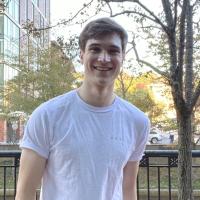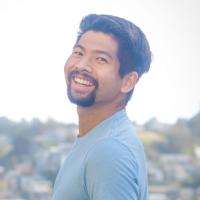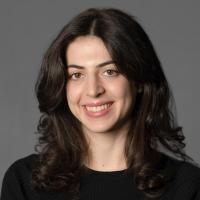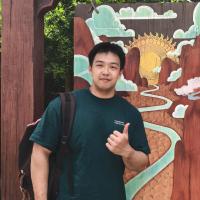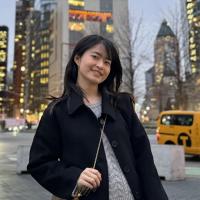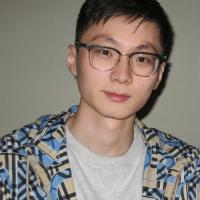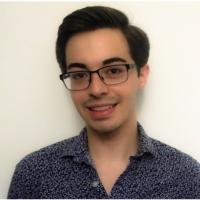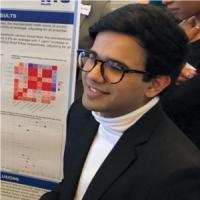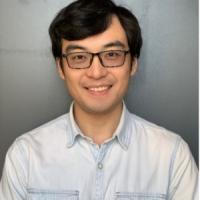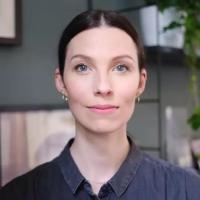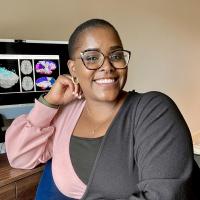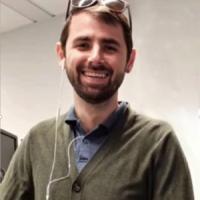Lab Members
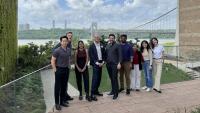
Daniel W. Belsky, PhD
Associate Professor of Epidemiology
Columbia University Mailman School of Public Health and Butler Columbia Aging Center
Education
BA Swarthmore College, Psychology
PhD University of North Carolina at Chapel Hill Gillings School of Public Health, Department of Health Policy & Management
Postdoctoral Fellowship Duke University Center for the Study of Aging and Human Development, with Terrie Moffit and Avshalom Caspi
Introduction
Dan is an Associate Professor of Epidemiology at the Columbia University Mailman School of Public Health and the Butler Columbia Aging Center, where he directs the Center’s Geroscience Computational Core. He was an Early-Career Fellow of the Jacobs Foundation and is a current Fellow of the Canadian Institute for Advanced Research (CIFAR). He is a Scientific Advisory Board Member for the Xprize for Healthspan Extension and the Biomarkers of Aging Consortium. Prior to coming to Columbia, Dan was Assistant Professor in the Departments of Medicine and Population Health Sciences at the Duke University School of Medicine, where he previously completed a postdoctoral fellowship at the Center for the Study of Aging and Human Development, with Terrie Moffit and Avshalom Caspi. Dan earned his BA from Swarthmore College and his PhD from the UNC Gillings School of Global Public Health
Dan works at the intersection of the social and behavioral sciences, genomics, and public health. His focus for the past several years has been on development and evaluation of methods to quantify the pace and progress of biological process of aging in young, mid-life, and older-adult humans and the application of these methods to study (1) how life-history and social factors contribute to individual differences in healthy aging; and (2) whether and how aging processes can be modified by intervention. With collaborators Terrie Moffitt and Avshalom Caspi he originated the Pace of Aging method to quantify the aging process from longitudinal analysis of human physiology and recently translated this method into a DNA-methylation blood test that can be implemented from a single time point of data collection. He is principal investigator of NIH-funded projects to test how caloric restriction may slow or reverse aging-related changes to the genome (CALERIE), to understand long-term impacts of in-utero famine exposure on biological aging (Dutch Hunger Winter Family Study, with Bertie Lumey), and to test the potential of anti-poverty policy intervention to slow biological aging (MyGoals for Healthy Aging, with Peter Muennig).
Dan’s Google Scholar, Twitter, Email, and CV.
Meet the Team
Calen P. Ryan, PhD
- Associate Research Scientist
- Robert N. Butler Columbia Aging Center
Calen is an evolutionary biologist and human geneticist specializing in the role of epigenetic processes in development, reproduction, aging, and health. He works with high-throughput data from large, longitudinal population and clinical datasets to answer fundamental questions about why our bodies function the way they do, and how that can help us be healthier, and age better.
Dr. Ryan’s overarching research goal is to use an evolutionary framework to inform basic biology, medicine, and public health by characterizing the molecular processes underlying evolutionarily-motivated questions. He is most interested in reproduction, inheritance, development, and senescence (aging), which are core concepts in evolutionary thinking.Calen earned his PhD in biological anthropology at Northwestern University working with National Academy of Sciences member Chris Kuzawa and Canadian Institute for Advanced Research Fellow Thomas McDade.
Calen’s google scholar page, website, and Twitter.
Contact at cpr2139@cumc.columbia.edu.

Micah Savin, PhD
- Postdoctoral Research Scientist and Geriatric Neuropsychology Fellow
- Robert N. Butler Columbia Aging Center
Micah is a biracial non-binary postdoctoral research scientist and geriatric neuropsychology fellow at the Butler Columbia Aging Center. Micah holds expertise in the study of the brain and behavior with specialization in age-associated processes of neurobehavioral decline (e.g., dementia), health disparities, and HIV.
Micah completed their MS in clinical research and a PhD in clinical psychology with a specialization in quantitative statistics, major area of study in clinical neuropsychology, and clinical internship in geropsychology. Historically, Micah’s work has focused on the social and clinical mechanisms of brain health disparities in HIV and aging, with a focus on social determinants of neurobehavioral decline and the integration of relevant frameworks for minoritized ethnoracial, sexual, and gender identities. This included the co-founding of an international research collaboration for Indigenous health disparities, Wisdom Workgroup for Indigenous Neuropsychology Global Strategies. Micah expanded upon this collaboration for their dissertation and found that American Indian and Alaskan Native participants exhibited faster trajectories of cognitive aging, a disparity that was amplified by immunosenescence in those with HIV.
Micah’s overarching ambition as a clinical-scientist are two-fold: 1) to equitably identify modifiable social and molecular mechanisms of neurobehavioral decline, and 2) to disseminate culturally tailored interventions for biological aging across at-risk populations.

Arun Balachandran, PhD
- Postdoctoral Research Scientist
- Robert N. Butler Columbia Aging Center
Dr. Arun Balachandran is a postdoctoral research scientist working with Dr. Dan Belsky at the Robert N Butler Columbia Aging Center. He received his PhD in demography from the University of Groningen, The Netherlands in 2020. He did his pre-doctoral training at the Institute for Social and Economic Change, India, and has a background in the discipline of economics with a master’s degree from the Madras School of Economics, India. He worked towards 'Population Ageing in Europe and Asia: Beyond Traditional Perspectives' during his PhD, where he developed new measures of population ageing for comparisons across Europe and Asia, with a particular focus on gender.
His research interests are interdisciplinary and intersects across demography, population ageing, quantitative methodology and gender. His works has been published in Ageing & Society, Journal of Ageing and Health, SSM-Population Health, Economic & Political Weekly and The Lancet. He was awarded the KB Pathak Memorial Award in 2019 for methodological innovation in Population and Health, by Indian Association for the Study of Population. Previously, he has worked with the University of Maryland College Park and with the Population Council.

Will Marella
- Senior Data Analyst
Will is a staff associate and senior data analyst in the Robert N. Butler Columbia Aging Center. He received a BA in Biology from Brown University in 2023 and an MPhil in Population Health Sciences from the University of Cambridge in 2024. For his MPhil dissertation, he mathematically derived, developed, and analyzed a mean field variational inference algorithm and partially collapsed Gibbs sampler to optimize probabilistic modeling used to identify multimorbidities from health data. In the Belsky lab, Will is a member of the Geroscience Computational Core, where he develops key GCC packages and applies machine learning and statistical modeling to complex data types to assist a variety of aging-related research projects.
Will’s Github
Contact at wm2530@cumc.columbia.edu

Alex Furuya, MPH
- MPH Candidate in Biostatistics
Alex is is a candidate for the Master of Public Health in Biostatistics at the Mailman School of Public Health at Columbia University. He specializes in data processing and analysis and uses statistical software programs like R and SAS to create actionable insights in the realm of public health. He is interested in non-communicable diseases, aging, and HIV. He aims to use his statistical skills to improve the health outcomes in immigrant and LGBTQ communities.
Alex currently works with Dr. Belsky in the Framingham Heart Study research to create a pace of aging measure and to identify potentially at-risk patients.

Claire Eckstein Indik
- Project Coordinator
- Robert N. Butler Columbia Aging Center
Claire is a Project Coordinator in the Robert N. Butler Columbia Aging Center at Columbia University. Currently, she is working with Dr. Belsky on projects investigating the impact of famine in-utero on the development of disease in later-life.
Claire’s research interests revolve around exploration of the psychosocial determinants of health. Specifically, she aims to understand the impact of these factors through the lens of the mind-body connection. With a background in computational methods, Claire is also interested in the quantification of health outcomes and markers that inform our understanding of disease. In her spare time, Claire enjoys playing board games and taking care of her plants.

Heming Pei, MS
- MPH Candidate in Epidemiology
Heming is a Master student in the Department of Epidemiology at Columbia Mailman School of Public Health. He is currently working with Dr. Belsky to quantify the biological aging process and identify related risk factors and adverse health outcomes.
He earned his Master's degree in Demography from Peking University in 2023, where he focused on the dynamics of the aging process and its determinants, such as the longitudinal transition of weight status and the trajectory of functional disability. Heming is interested in translating methods into packages and data visualization.

Yifan Shi
- MPH Candidate in Epidemiology
Yifan is an MPH candidate in Epidemiology at the Columbia Mailman School of Public Health, with a Certificate in Health of an Aging Society. Currently, she is working with Dr. Belsky and Dr. Yuan Zhang on the English Longitudinal Study of Aging dataset to quantify the pace of biological aging, and test how accelerated biological aging may predispose to cognitive decline and increased dementia risk.
Yifan graduated from the National University of Singapore with a major in Food Science and Technology, and minors in Public Health and Geosciences. She is deeply interested in aging, health equity, and health policy. Her research is driven by a commitment to understanding and addressing health disparities, particularly as they affect aging populations.
In her free time, Yifan enjoys windsurfing and photography.

Alumni
Gloria Huei-Jong Graf, PhD
- PhD in Epidemiology
Gloria is a PhD student in Epidemiology at the Columbia Mailman School of Public Health. She recently obtained her MPH in Epidemiology, also from Columbia, and has worked on a variety of projects related to health outcomes in HIV-positive, formerly incarcerated individuals, as well as a systematic review of ACEs and justice system contact (now in-press at Pediatrics). Currently, she is working with Dr. Belsky on projects investigating biological aging as a mediator of social gradients in health and testing how biological aging may be modified in a randomized trial of caloric restriction. Gloria also enjoys baking and has recently taken up birdwatching in her spare time. Gloria is interested in life course and causal inference research methods, and also has substantive interests in immigrant health and religion/spirituality (R/S) factors.

Harry Wang, MS
- MS in Biostatistics
Harry earned his M.S. in Biostatistics from Columbia Mailman School of Public Health in 2024. He joined Dr. Belsky's Lab in the summer of 2023, working closely with Dr. Belsky, Dr. Ryan, and Dr. Savin on various projects including predicting ICU patients’ mortality outcomes by quantifying their biological age and studying cognitive decline with DunedinPACE. Post-graduation, Harry has taken up a position as a Biostatistician at Massachusetts General Hospital.

Runze Cui, MS
- MS in Biostatistics
Runze is a Master student in the Department of Biostatistics at Columbia University's Mailman School of Public Health. He is enrolled in the Public Health Data Science track, which places a strong emphasis on addressing epidemiological questions using statistical theory, skills, and powerful softwares such as R, SAS, and SQL. He has actively participated in various projects, including study on epigenetic clocks, human allostatic loads, and the development of new statistical algorithms. His research interests encompass causal inference, life courses, machine learning, and biostatistical methods.
Currently, Runze is working with Dr. Belsky and Dr. Ryan on the 'clocks and cells' project, aiming to understand how variations in relative white blood cell abundances among individuals impact epigenetic clock estimates of aging and whether blood cell composition may confound associations between exposures and clock measurements.
Christopher Crowe, MPH
- PhD in Epidemiology
- Pre-Doctoral Fellow in the Psychiatric Epidemiology Training Program
Chris is a PhD student in the Department of Epidemiology and pre-doctoral fellow in the Psychiatric Epidemiology Training Program. He is particularly interested in understanding psychosocial determinants of health, with a focus on exploring the causes and consequences of loneliness. Most recently, he has studied how loneliness and social isolation are related to healthspan and lifespan in American older adults (preprint on MedRxiv). In addition to his research efforts, he has also enjoyed working as a lead teaching assistant for (Y)our Longer Life, a course on the public health challenges and opportunities that come with aging societies, and Research Methods & Applications: Quantitative Foundations, a course on quantitative methods in epidemiology and biostatistics.

Meeraj Kothari, MPH
- Programmer
Meeraj earned his Master of Public Health in Epidemiology from Columbia Mailman School of Public Health in 2020. He worked as a research assistant and programmer at Columbia Aging Center focusing on quantification of biological aging. His research with Dr. Belsky focused on analysis of DNA methylation, blood chemistry, and functional testing data to measure biological age and pace of aging. He is also interested in impacts of multiple pollutants on urban environments especially for children and older adults. He's currently working as a Data Scientist at Teladoc Health. Connect with Meeraj on Twitter.

Dayoon Kwon, MPH
- PhD Candidate in Epidemiology (UCLA Fielding School of Public Health)
Dayoon is a PhD student in Epidemiology at the UCLA Fielding School of Public Health. She is interested in integrating multi-omics data to understand how environmental and lifestyle factors affect our long-term health, potentially delaying disease onset and extending healthy lifespan.
She obtained her MPH in Epidemiology from NYU and worked with Dr. Belsky on quantifying biological aging using DNA methylation and blood-chemistry data. Currently, she is working with Dr. Ritz on projects examining the impact of air pollution and diet on Parkinson's disease using microbiome and metabolome data.
Dayoon's Google Scholar page and follow her on Twitter.
Reem Waziry, PhD

Early Career Collaborators
Xu Gao, PhD
- Assistant Professor, Occupational and Environmental Health Sciences (Peking University, China)
Dr. Xu Gao earned his PhD in epidemiology from Heidelberg University at Heidelberg, Germany. He has been working with Dr. Dan Belsky since his postdoctoral training with Dr. Andrea Baccarelli at Columbia University in 2018. He is now an Assistant Professor of the Department of Occupational and Environmental Health Sciences at Peking University, China. As an epidemiologist and epigeneticist, he has a broad research interest including aging, environmental health, and epigenetic epidemiology. His recent and ongoing research explores potential molecular pathways linking environmental exposures to human aging by integrating advanced epidemiologic methods, clinical assessments, and multi-omics data. Up to date, he has published 30+ peer-reviewed articles related to aging. In his spare time, his passions include reading, tech gadgets, and coffee.
Follow Xu on Twitter and publications on Google Scholar.

Laurel Raffington, PhD
- Leader of the Max Planck Research Group
Dr. Laurel Raffington is a German-American developmental psychologist. She leads the Max Planck Research Group Biosocial at the Max Planck Institute for Human Development in Berlin. Their research examines how social inequality affects child and adolescent development at multiple biological and psychological levels that may later lead to social disparities in adults' educational attainment and health. Recent projects have explored whether epigenetic algorithms can be used to study this "long arm of childhood". Dr. Raffington received her Ph.D. in psychology from the Berlin School of Mind and Brain at the Humboldt-Universität zu Berlin in Germany whilst working at the Max Planck Institute for Human Development, where she later continued as a postdoctoral researcher. Her dissertation was awarded with the Otto-Hahn-Medal by the Max Planck Society and the Margret-and-Paul-Baltes Prize by the German Psychological Society. She completed postdoctoral training with Prof. Kathryn Paige Harden and Prof. Elliot Tucker-Drob at the University of Texas at Austin, Department of Psychology and Population Research Center. Connect with Dr. Raffington on Twitter and LinkedIn. Follow Dr. Raffington’s publications and other works on Research Gate and on her Website.

Indira C. Turney, PhD
- Postdoctoral neuroscientist at Columbia University Medical Center in New York City—in the Taub Institute for Research on Alzheimer’s Disease and the Aging Brain
Dr. Indira C. Turney is a cognitive neuroscientist whose research significantly advances our understanding of brain aging in diverse populations. As the director of the Brain Health Equity (BHE) Unit at the NIH's National Institute on Aging (NIA), she investigates how environmental, sociocultural, and biological factors shape brain health, with an emphasis on diverse Black adults across the lifespan. Using advanced neuroimaging techniques like MRI, combined with comprehensive epidemiologic and genomic analyses, she explores how stress, social disadvantage, and structural factors contribute to disparities in brain aging and Alzheimer's disease and related dementias. Her research aims to identify critical periods of vulnerability and resilience to inform targeted interventions that improve brain health outcomes for Black adults and other at-risk populations.
Dr. Turney's academic journey began with a degree in Psychology from the University of the Virgin Islands, followed by a Ph.D. in Cognitive Neuroscience from Pennsylvania State University. She completed her postdoctoral training at Columbia University Irving Medical Center, where she focused on socio-cultural mechanisms affecting the aging brain in racially and ethnically diverse middle-aged and older adults. Her work has earned her significant recognition, including funding from an NIH Diversity Supplement, the NIH AD-RCMAR CIRAD Pilot Grant, and the NIH/NIA K99/R00 Pathways to Independence Award. She has also been honored as an NIH Butler-Williams Scholar and a BRAINS (Broadening the Representation of Academic Investigators in NeuroScience) fellow. In 2024, Dr. Turney joined the NIA's Laboratory of Epidemiology and Population Sciences, Health Disparities Research Section, as an Earl Stadtman Tenure-Track Investigator and an NIH Distinguished Scholar. She continues to focus on advancing brain health equity and addressing health disparities through her research.
Connect with Dr. Turney on Twitter & Instagram. Follow Indira’s publications and other works on Google Scholar, LinkedIn, and BlackInNeuro.

Waylon J. Hastings, PhD
- Postdoctoral Researcher (Shalev Lab at Pennsylvania State University)
Dr. Waylon J. Hastings is an Assistant Professor in the Department of Nutrition at Texas A&M University. He earned undergraduate degrees in Biochemistry, Genetics, and Mathematics from Texas A&M University (2013) and a dual-title PhD in Biobehavioral Health and Bioethics from Pennsylvania State University (2020). Collaborating with the Telomere Research Network, CALERIE™ Clinical Trial, and COnsortium of METabolomics Studies (COMETS), he works to develop, improve, and validate methods to measure ‘biological age’ and functional decline in humans. He also researches how stress and metabolism impact the ability of these measures to answer questions about mechanisms of aging. His work has been highlighted by Science Daily, the American Council for Science and Health, and the New York Post. Dr. Hastings’ mission is to develop efficient methods to measure individual differences in aging. In doing so, he aims to improve the effectiveness of interventions aimed at increasing healthspan. Connect with Waylon on X (formerly Twitter; @whastings2012). Follow Waylon’s publications and ongoing work on GoogleScholar and ResearchGate.

Mengling Cheng, PhD
Dr. Mengling Cheng is an assistant professor at the East China University of Science and Technology, in Shanghai, China. She is a Marie Skłodowska-Curie Fellowship awardee (2020) and a Humboldt Fellowship awardee (2018). Mengling got her M.A. degree from Peking University, China and her PhD degree from University of Lausanne, Switzerland. She has been working with Dr. Belsky since her doctoral research stay in the Columbia Aging Center in 2022. Dr. Cheng’s research focuses on social and biological determinants of aging and health from a life course and cross-national perspective. She uses advanced statistical models to analyze panel data from China, the U.S., and European countries. Follow Dr. Cheng’s publications on Google Scholar.

Master Thesis Advisees
Nathalie Strohmayer
- Epidemiology, 2024
Manjari Madhusudanan
- Epidemiology, 2024
Darina Kirilina
- Epidemiology, 2024
Mary Locke
- Epidemiology, 2023
Caitlin Cole
- Epidemiology, 2023
Jialu Cheng
- Epidemiology, 2023
Ali Tajkarimi
- Epidemiology, 2023
Steven Wu
- Epidemiology, 2023
Irene Rosul
- Epidemiology, 2022
Yvonne Hou
- Epidemiology, 2022
Katherine Dobosh
- Epidemiology, 2021
Mary Thoma
- Epidemiology, 2021
Shaoyi Zhang
- Epidemiology, 2021
Katherin Parrotte
- Epidemiology, 2021
Illana Mittleman
- Sociomedical Science, 2021
Lunbei Hu
- Biostatistics, 2021
Steven Powers
- Epidemiology, 2020




